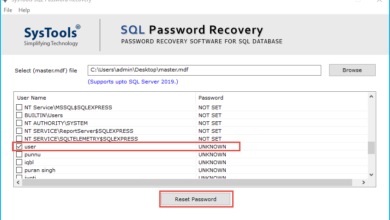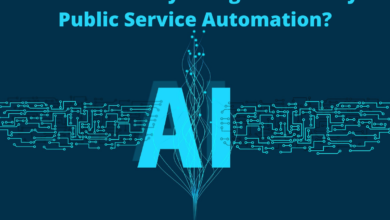Quantum Computing and Mobile Apps: Exploring the Future of Mobile Development

With its promise of unparalleled computational power and potential to revolutionize numerous industries, quantum computing stands out as a new frontier in the ever-changing technological world. The report says that the industry of Quantum Computing is expected to reach $4.35 billion by the end of 2028 with a CAGR of 38.3% from 2023 to 2028
The possibility of completely revamping the development, optimization, and use of mobile apps is growing in tandem with the possibilities of quantum computing. This article delves into the potential, difficulties, and ramifications of the future of mobile app development services with quantum computing.
Understanding Quantum Computing
Compared to classical computers, quantum computers may execute computations at an enormously quicker rate by utilizing the laws of quantum physics.
Superposition and entanglement allow quantum bits, sometimes called qubits, to occupy more than one state at once, unlike the binary 0s and 1s that classical bits can only ever take on. Quantum computers are perfect for optimization, machine learning, cryptography, and other fields because of their unique ability to solve complicated problems efficiently.
Impact On Mobile App Development Services
Several revolutionary results are on the horizon as a result of combining mobile app development services with quantum computing:
#1. Enhanced performance
One of the main benefits is better performance because quantum algorithms traditionally outperform classical ones and thus can be used for instance to make complex computations faster.
Therefore, applications that are “optimized” will load faster, have no lag, and it will enable customers to have a great user experience. Designers can create better apps by doing things involving data processing, using AI-driven customization, and faster real-time analysis.
#2. Advanced security
Quantum encryption furnishes unmatched security, as it encases where valuable data is entrusted, as well as where financial transactions are, by risks that may arise like quantum hacking. Applications for mobile devices will be a game-changer provided that they protect their users with resilient next-generation cybersecurity approaches that are quantum computing proof for consistent data encryption.
#3. Optimized resource management
Reshuffling and maximizing resources with quantum computing ensure a better allocation, resulting in steady battery and memory in mobile devices. Such optimization is extremely requisite in settings with a lack of resources since this enables the operation of programs which can be done effectively with minimum current usage by the machines.
#4. Complex problem solving
Algorithms based on quantum mechanics are the best at optimizing routes, managing supply chains, and allocating resources, all of which are areas that are relevant to mobile applications. Apps built with quantum computing capabilities can solve complex real-world problems in novel ways.
Challenges And Considerations
Quantum computing has enormous promise, but there are several factors to think about and obstacles to overcome when incorporating it into mobile app development services:
#1. Hardware limitations
The current quantum hardware has not reached its maximum capabilities, with qubit coherence periods, error rates, and scalability being the decisive factors leading to its future developments. Massive technological developments incorporating low-energy consumption, heat removal, and scales being scaled down for mobile platforms are imperative for integrating quantum computers into mobile devices.
#2. Algorithmic complexity
Sometimes, you have to use a special methodology, and access to a lot of computer power is also a must. The information system for mobile phone apps will be improved once the coders are taught to write the quantum language and execute it. Interacting with quantum components brings a learning curve for developers who have to transfer between the two concepts, classical and quantum.
#3. Infrastructure requirements
The majority of quantum computing resources, including simulators, processors, and development platforms, are housed in the cloud and operate in a centralized fashion. There may be latency and reliability issues when integrating quantum capabilities into mobile apps because of the need for uninterrupted communication and compatibility with remote quantum servers.
#4. Privacy and security
Although quantum cryptography provides strong security solutions, it is still difficult to guarantee the confidentiality and authenticity of quantum communications when used on mobile devices. Ongoing research and development is necessary to address potential threats like eavesdropping, dissemination of quantum keys, and post-quantum cryptography assaults.
Exploring Use Cases Of Quantum Computing And Mobile App Development
Several encouraging use cases show how quantum computing and mobile app development might work together, despite the obstacles:
#1. Quantum-enhanced machine learning
By interacting with mobile devices that use quantum computer algorithms for surprisingly high accuracy and efficiency of machine learning tasks, one can achieve higher performance. This is because they can perform the functions of various tasks, which are image identification, natural language processing, and recommendation systems.
From a variety of areas to another, algorithms that are quantum-based could fuel optimized training and inference and hence bring about a change regarding the way machine learning tools are used.
#2. Secure quantum communication apps
The encrypted messages may be sent and received using mobile apps along with calls and transactions via quantum encryption through phone calls and money. Using the quantum-resistant encryption approach and quantum key distribution, they will enable users to achieve privacy unmatched by ordinary applications.
#3. Quantum-assisted optimization apps
The capacity of quantum computers to effectively solve complicated combinatorial problems is a boon to mobile apps that use optimization for tasks like logistics planning, resource allocation, and scheduling. Decisions can be made more quickly and effectively with algorithms inspired by quantum mechanics, which ultimately benefits users.
#4. Quantum-simulated reality apps
Programs that use quantum computing to imitate reality can create incredibly lifelike simulations of complicated landscapes, interactions, and physics-based scenarios. In fields such as gaming, training, and design, quantum simulation methods provide more lifelike simulations and more engaging user experiences.
Conclusion
The quantum computing aspect may offer an exceptional path for mobile app service providers to take their services to the next level. Mobile apps ultimately will circumvent the latter ones restrictions due to progress in quantum processors that greatly increase speed, security, and processing capabilities.
Therefore, it will offer consumers with experiences they have never experienced. With every passing day in this fast-changing world that we live in, it is becoming more evident to hire mobile app developers from India. It is only thrilling to envisage the impact of mobile apps across all spheres and discover how they alter lives in unpredictable ways.
Check out these valuable insights for your next adventure!





